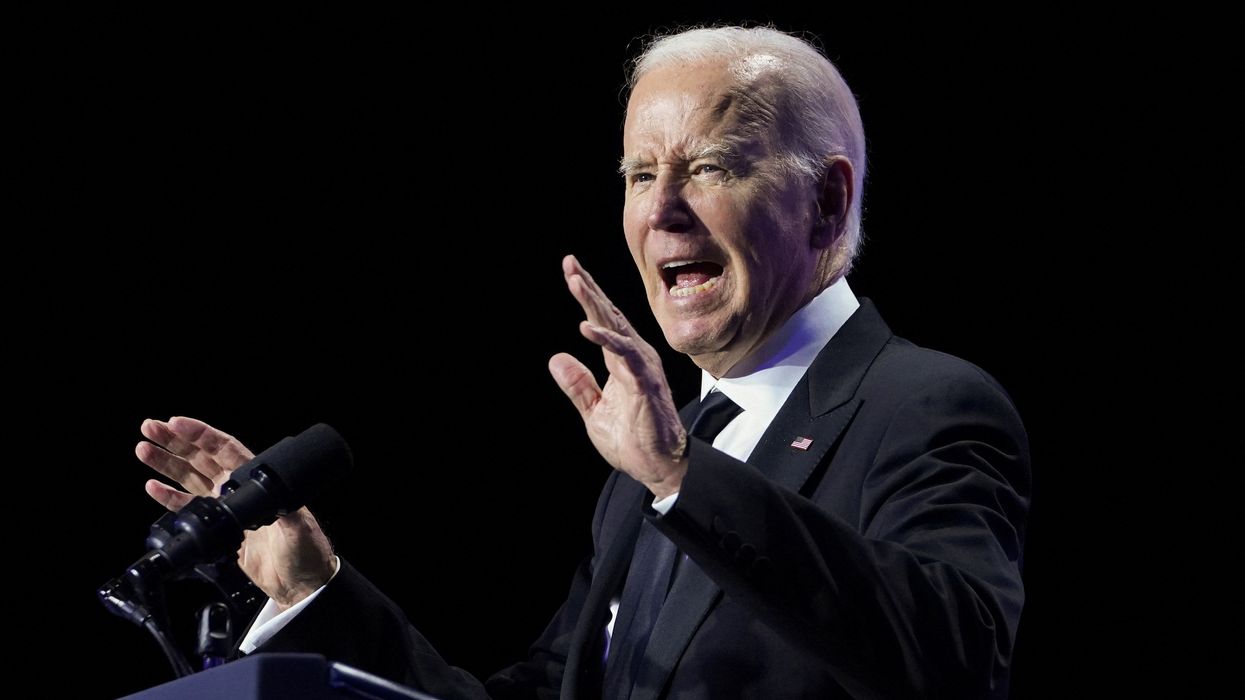Price of oil could surge over $100 in 2024 amid Red Sea conflict and Biden's reckless reserve depleting

Joe Biden has been blamed for 'recklessly' depleting the US oil reserve
| Reuters
The expert suggests the price could surge due to the geopolitical issues
Don't Miss
Most Read
The price of oil could jump to $100 per barrel next year following chaos in the Red Sea and two ongoing wars, a US economist has warned.
Jonathan Fortun of the Institute of International Finance suggests the price could surge due to the geopolitical issues going on across the world.
Shipping delay concerns continue to grow after BP paused operations through the Red Sea following a series of attacks by rebels.
It comes as wars rage on in Ukraine and Gaza which Fortun explained is causing the prices to fluctuate.
 Israeli soldiers drive in a tank by Israel's border | Reuters
Israeli soldiers drive in a tank by Israel's border | Reuters"We have a forecast of around $100 a barrel, in the sense that we are still questioning precisely the geopolitical elements and if anything that's the horizontal element for our forecast.
"This includes the stance of the US economy, the stance of the oil, the stance of China and its relationship with the world."
Heritage Foundation economist, Dr. E. J. Antoni echoed Fortun's forecast but pointed the blame towards the Biden administration, which has "left the US and her allies more vulnerable to events like this".
The US economist said Biden has "drained" America’s strategic petroleum reserve.
LATEST DEVELOPMENTS:
Speaking to GB News, he said: "This is just one example of why the Biden administration’s draining of America’s strategic petroleum reserve was so reckless – it has left the U.S. and her allies more vulnerable to events like this.
"The current economic slowdown around the world has also temporarily dampened oil demand, which provides a small amount of breathing room as well, limiting the upward pressure on prices.
"However, reflecting once more on the long-term trajectory of the industry, many Western countries are committing energy suicide by transitioning to unreliable and inefficient “green” energy while abandoning domestic oil and gas, the bulwarks of their economic power.
"Coupled with future oil production cuts from OPEC+, this points to a slow but steady increase in energy prices for a long time to come, making $100 oil not just plausible, but likely in the years to come."
 Joe Biden has left the US 'vulnerable' after 'draining' America’s strategic petroleum reserve, a US economist has warned | GB News/Reuters
Joe Biden has left the US 'vulnerable' after 'draining' America’s strategic petroleum reserve, a US economist has warned | GB News/ReutersHe added: "There’s no indication that oil will rise over $100 in the near term. There are sufficient global stockpiles to ride out temporary disruptions.
"But that’s not to say a prolonged closure of the Red Sea won’t have a considerable impact. Eventually, both private and public reserves will run dry.
"Coupled with future oil production cuts from OPEC+, this points to a slow but steady increase in energy prices for a long time to come, making $100 oil not just plausible, but likely in the years to come."










